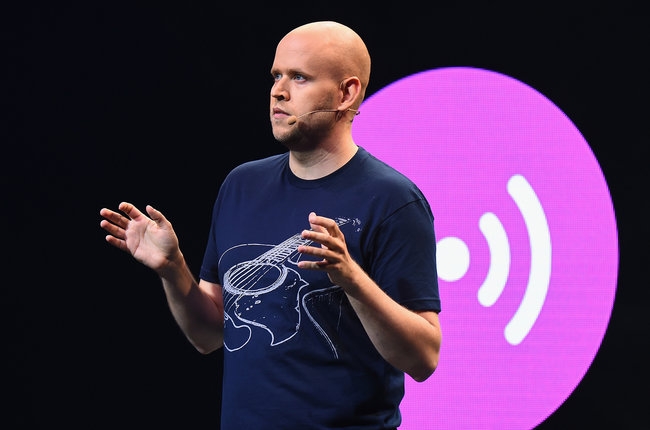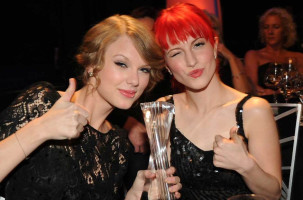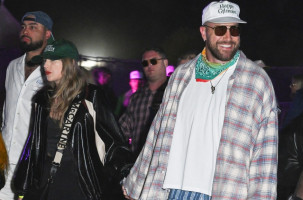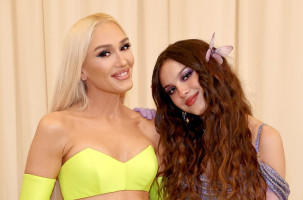As Spotify works to hammer out its final major-label licensing deal with Warner Music Group, controversy over its playlisting of songs by "fake" or pseudonymous artists has not only enraged label partners but could cost the streaming service at the negotiating table.
While populating some of its playlists with alleged cut-rate mood music or covers created by production houses or obscure producers can help Spotify reduce its hefty content costs, one incensed major label executive characterized the practice as a "betrayal" while another said it was "offensive."
The ultimate terms that WMG agrees to with Spotify could impact the larger music industry because of a “most favored nation" clause potentially embedded in Spotify’s contracts with the other labels. According to the contractual stipulation, if WMG can negotiate a higher licensing rate than its competitors, Universal Music Group and Sony Music Entertainment may also get the higher fee, even though the latter two majors already signed their deals (UMG in April and Sony last week.) Thus, the stakes of talks with WMG are even higher for Spotify's bottom line.
UMG relinquished its "most favored nation" rights to the European Union as part of conditions for approving its acquisition of EMI in 2012, but it still retains that right in the U.S. And while a Sony spokesperson wouldn't confirm if that clause is contained in its latest Spotify contract, it was revealed in a recent agreements with the streaming service.
While all the labels declined to comment on the licensing negotiations, a spokesman for Spotify did acknowledge that the licensing costs for different pieces of music vary, though denied intentionally programming music licenses at lower rates on its mixes.
"Obviously, not all content costs are the same -- it's a marketplace -- but we do not favor any tracks on our playlists due to costs," the spokesman said, explaining that tracks only stay on playlists if they perform well with listeners. "All of our playlists are performance based. The user experience comes first."
Not that such a practice in and of itself is unheard of. Stocking shelves with cheaper-to-produce goods is a common cost-cutting strategy for businesses -- especially ones that are losing money. Many retailers, for example, have private label goods that they buy at discounts and sell at lower costs, a strategy that deprives other manufacturers of that potential buy from the merchants, while also stealing market share from competing goods from those manufacturers.
Similarly, in the video-streaming business, companies such as Netflix, Amazon, Hulu and others have in recent years begun producing and relying increasingly on self-produced programming which often gets more promotion then the more expensive, outsider-produced fare and returns a higher margin.
But generally these businesses clearly demarcate their own homegrown brands from others. Music industry participants lament that Spotify doesn't make clear which tracks it has licensed at a discount, and complain that known artists and songwriters -- as well as their labels and publishers -- are taking the hit when cheaply-licensed tunes take their place.
"We're sure it's been going on for some time," one record-label source told Billboard, "but we didn't realize how much Spotify was packing these playlists with music that improves its margins. Millions of plays which would have otherwise gone to real artists getting real royalties. Labels, artists and songwriters are all furious that Spotify hasn't been honest, but there's also concern that this might spread to other genres and playlists as well."
Spotify, which denies these allegations, has continued to grow, scaling to more than 50 million subscribers and 140 million active users while its revenues have ballooned to nearly $3 billion, but its loses doubled last year to $570 million -- more than roughly 20 percent of revenues.
While Spotify may be aiming to minimize its royalty payments, which Billboardestimates comprises about 72 percent of its revenues in the U.S., to shore up its finances ahead of a long-planned public listing, label sources want Spotify to cut spending in other areas instead. Spotify has been on a hiring spree (poaching many executives from labels) announcing in February it was brining on 1,000 new employees and leasing 400,000 square feet space at 4 World Trade Center for its new New York City headquarters. Spotify is paying higher wages every year, too. Its average annual salary has jumped from $88,000 in 2014 to to $108,000 in 2015 to $112,000 in 2016 and other benefits expenses have increased commensurately according to its financial filings.
The "fake artist" controversy was sparked last year by a report in Music Business Worldwide last August, and mounted last week after Spotify issued a strongly-worded denial to Billboard after the story resurfaced. Last week Music Business Worldwide reported that one production house feeding Spotify's playlists is Epidemic Sound, a company that creates music for uses in films, tv shows and commercials that shares an investor -- Creandum -- with Spotify.
“If Spotify is paying lower royalties to Epidemic, Creandum is benefiting because Epidemic revenue is going up and Spotify’s costs are doing down, giving both better margins" says Audiam CEO and founder Jeff Price, expressing what could be seen as larger forces at work in encouraging this kind of playlist packing.
Creandum did not immediately return an email for comment.
As Spotify gears up to go public and potentially eyes a direct listing rather than a traditional IPO, the FCC may force its hand when it comes to disclosing how much it pays for which tracks, one label executive told Billboard, saying that Spotify will "have to make claims they could be liable for and this lack of transparency can't continue."
Since the major labels were given equity in Spotify in exchange for licenses to launch in the U.S. in 2011, the labels are also looking for returns on investment as stakeholders in addition to seeking royalties.
But independent labels will not be financially rewarded by a Spotify IPO and are annoyed that this alleged playlisting of cheaper tracks could result in lower rates for them. This since Spotify pays royalties by dividing gross revenues eligible for the royalty pool by the number of streams, the payments to all labels are impacted by the slice that goes to cut-rate creators and companies like Epidemic.
Indie music publishers, most of whom are licensed through a statutory license at rates based in part on total industry royalties -- 10.5 percent of it -- also suffer if the overall royalty pool is reduced.
Spotify's competitors could use the "fake artist" controversy to their advantage, though they haven't so far. "Talk about a marketing opportunity for Apple Music" one label source said, "if they continue to do s-it like this..."
The "artist community is already skeptical of Spotify," or at least its ad-supported, lower rate-paying tier, said another record-label source, and now feeling "locked out of these playlists," will do little to engender good will.
Calling the pseudonym music "GMM" or genetically modified music, and "Frankenstein playlists," one exec was furious that the label catalog has plenty of music comparable to some of the music on Spotify's playlists that wasn't used.
All the labels Billboard spoke with for this story, however, say Spotify has overall been good for business and the industry as a whole. The service has driven music streaming subscriptions, helped break artists and increased revenues and brought healthy competition to the space. But labels have perceived the latest revelations as a violation of trust.
“They’re not doing artist development if they’re just filling a playlists with music licensed at lower rates by artists using pseudonyms,"said one label source. “If that continues it could eat a lot of the growth we’ve had. We just need to make sure that this practice doesn't continue.”








